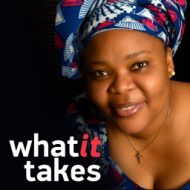I think there is a moment in everyone’s life — we all have it — when you’re pushed so far back against the wall, you have two options: allow that wall to swallow you or fight back.
Leymah Gbowee was born in central Liberia, in the heart of the first independent republic in Africa. The fourth daughter of the family, Leymah spent her first years in a close-knit rural community, where grandparents and neighbors cared for each other’s children. When she was a child, she moved with her family to the capital city of Monrovia. Her father worked for the country’s national security agency, her mother in the pharmacy of the national hospital. A serious student, Leymah Gbowee had just graduated from high school and was preparing to study medicine when her world was turned upside down.
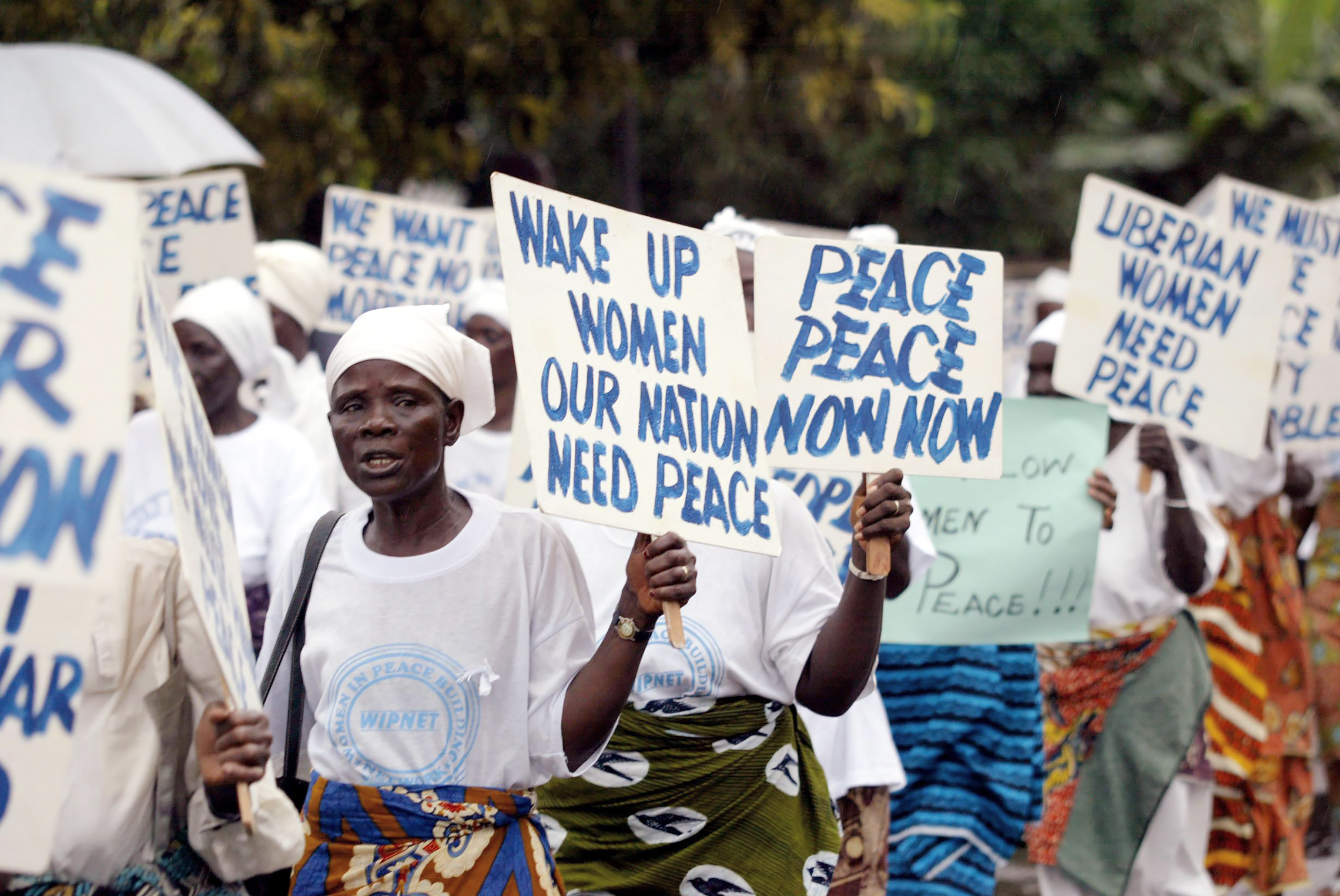
In 1989, General Charles Taylor led an armed uprising against the government of President Samuel Doe. The First and Second Liberian Civil Wars — two wars separated by a brief ceasefire — would rage for 14 years, tearing the country apart. The day the fighting broke out, Leymah was separated from her parents for several days. The war traumatized her mother and forced the 17-year-old girl to become a caregiver for her mother, her sisters’ children, and nearly 20 friends and extended family members who sought shelter in the Gbowee home. Sudden death and gruesome atrocities became everyday occurrences. At one stage of the fighting, Leymah and her mother sought refuge in a Lutheran church, when rebel soldiers entered the sanctuary and extracted suspected government officials for summary execution.
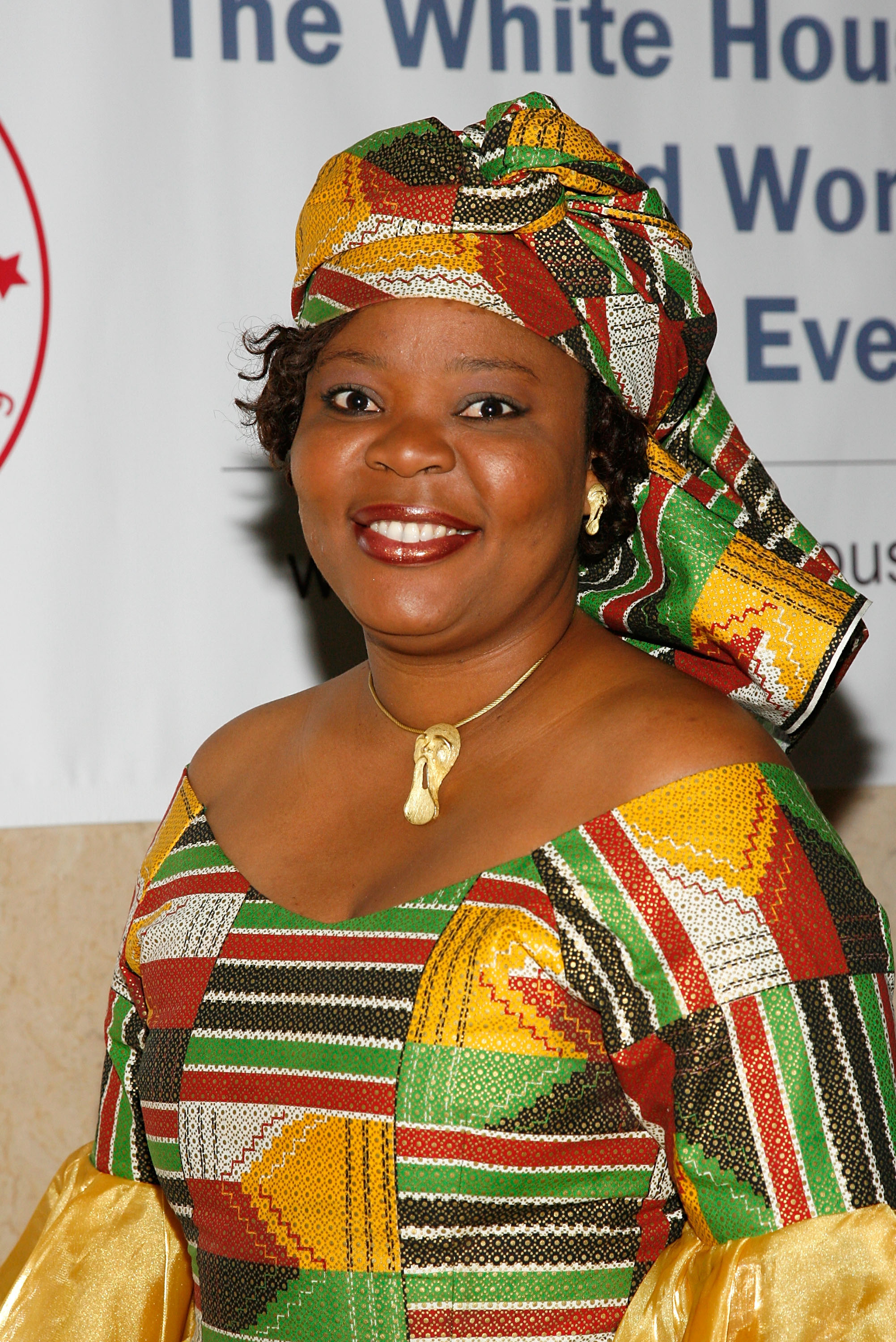
During the years of turmoil, Leymah had two children with her high school boyfriend: a son, Joshua “Nuku,” and a daughter, Amber. Despairing of the possibility of peace in Liberia, the young couple moved to neighboring Ghana. There, her boyfriend was absent as she was expecting a third child. She gave birth to her son Arthur prematurely. Unable to pay her fees, she was forced to sleep on the floor in a corridor of the hospital for a week, clutching the infant tightly to keep him warm enough to survive. She eventually reunited with her boyfriend and struggled to support her growing family. In Ghana, she supported herself by braiding her neighbors’ hair. When her boyfriend grew violent, she moved to a refugee camp. She decided to return to Liberia with her children, hitchhiking and riding buses on credit because she could not pay her fare. After returning to Liberia, she gave birth to a fourth child, a daughter named Nicole “Pudu,” conceived in the final weeks of her prior relationship.
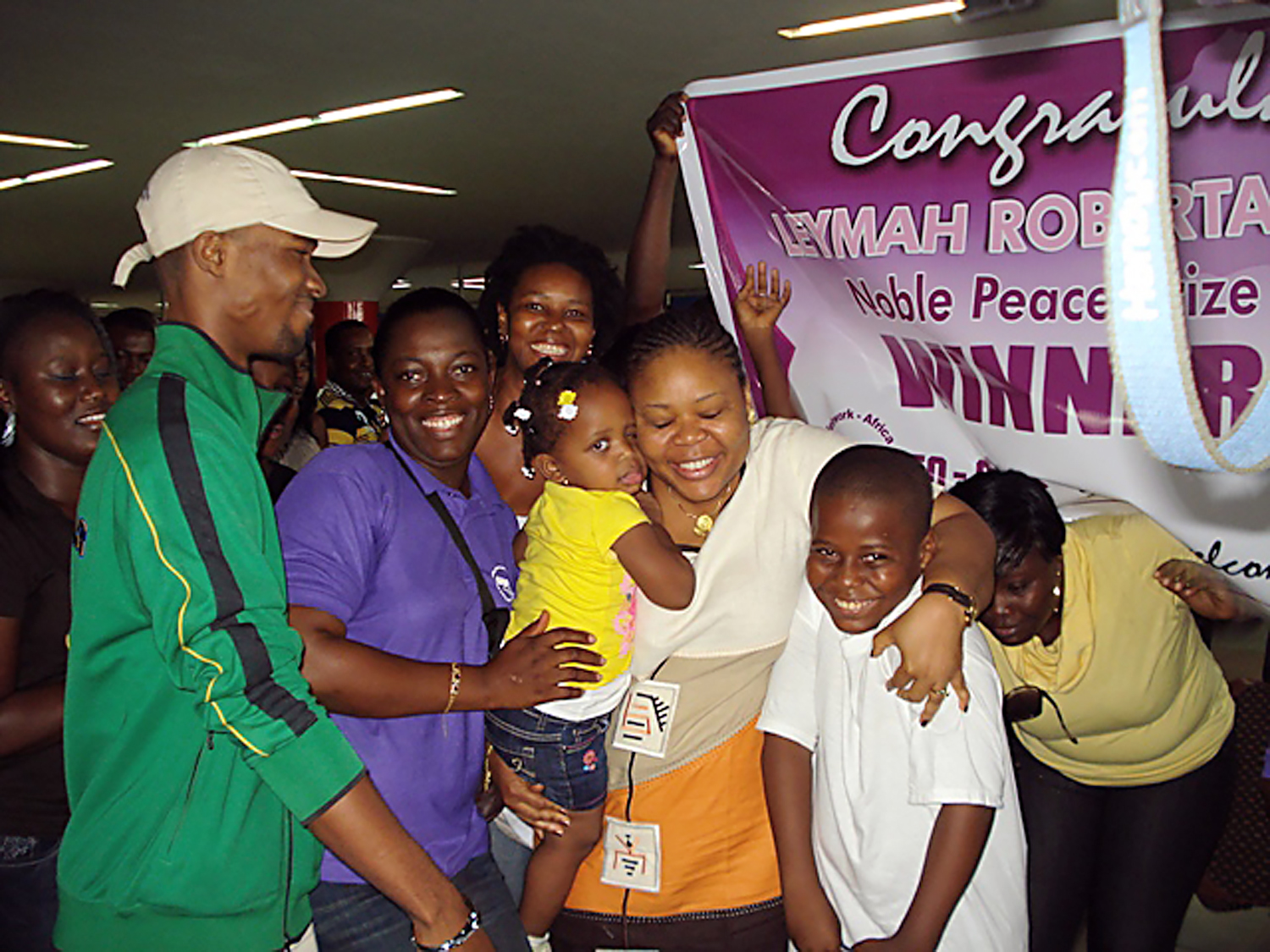
At 25, Leymah Gbowee was a single mother with four children. By her own account, she was “angry, broke and virtually homeless.” Her five-year old-son, Nuku, spoke to her despair in words that she came to regard as the voice of God in her life. She realized that years of abuse and deprivation had taught her to feel helpless over her own life, but she believed that with God’s help she could recover a sense of direction and make a better life for her family.
As the fighting of the First Liberian Civil War ended in a ceasefire, the country settled into a brief period of peace under the dictatorship of President Charles Taylor. The United Nations Children’s Emergency Fund (UNICEF) initiated a program to train social workers to help others recover from the trauma of war. Leymah Gbowee enrolled in the program and spent the next few years counseling women who had been raped by soldiers, and children who had seen their parents murdered.
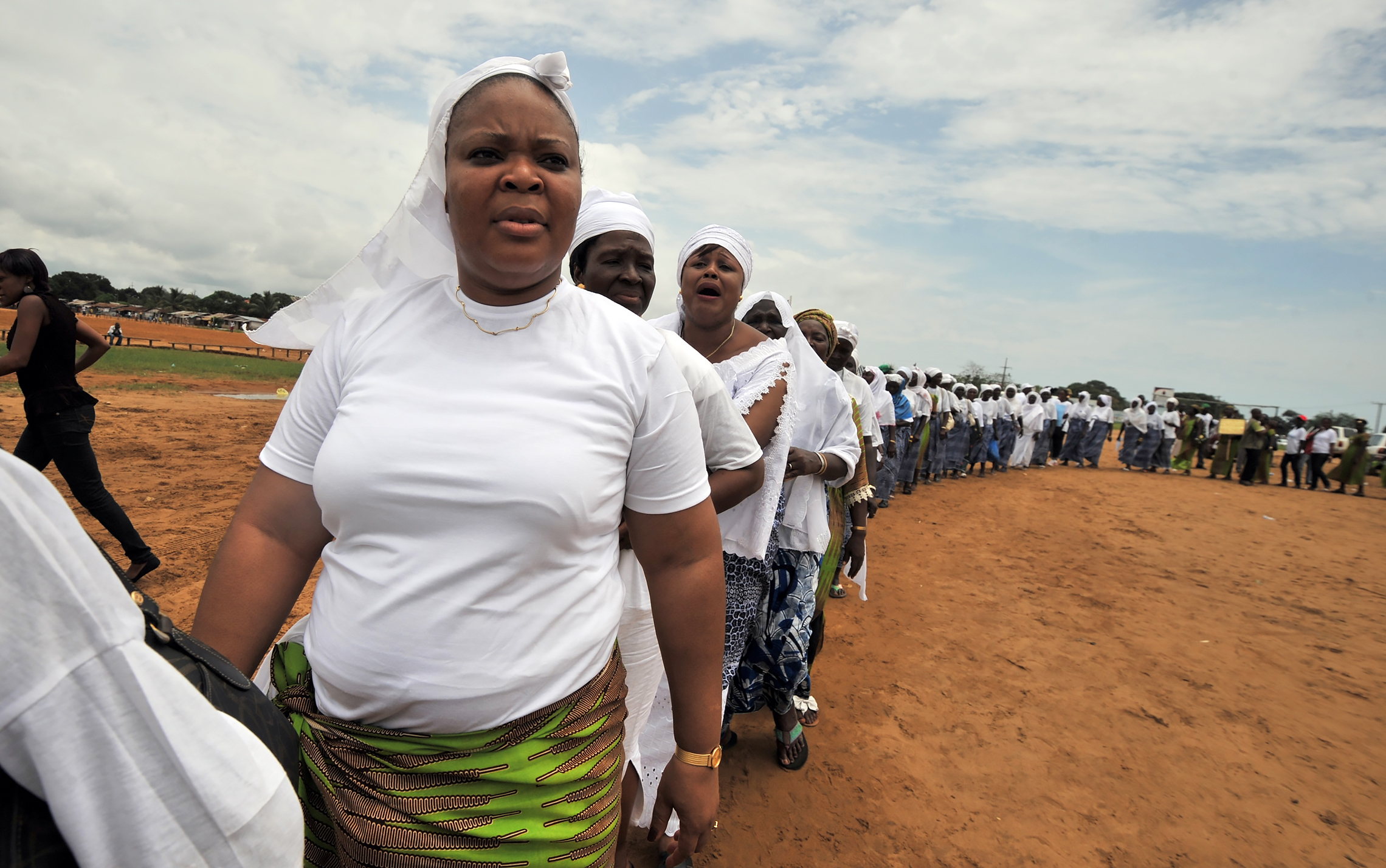
Gbowee joined Africa’s first regional peace organization, the West African Network for Peacebuilding (WANEP). While attending WANEP meetings in Ghana, she helped found WIPNET — the Women in Peacebuilding Network — and became coordinator of the network’s Liberian Women’s Initiative program. She adopted a fifth child, a daughter named Lucia “Malou.”
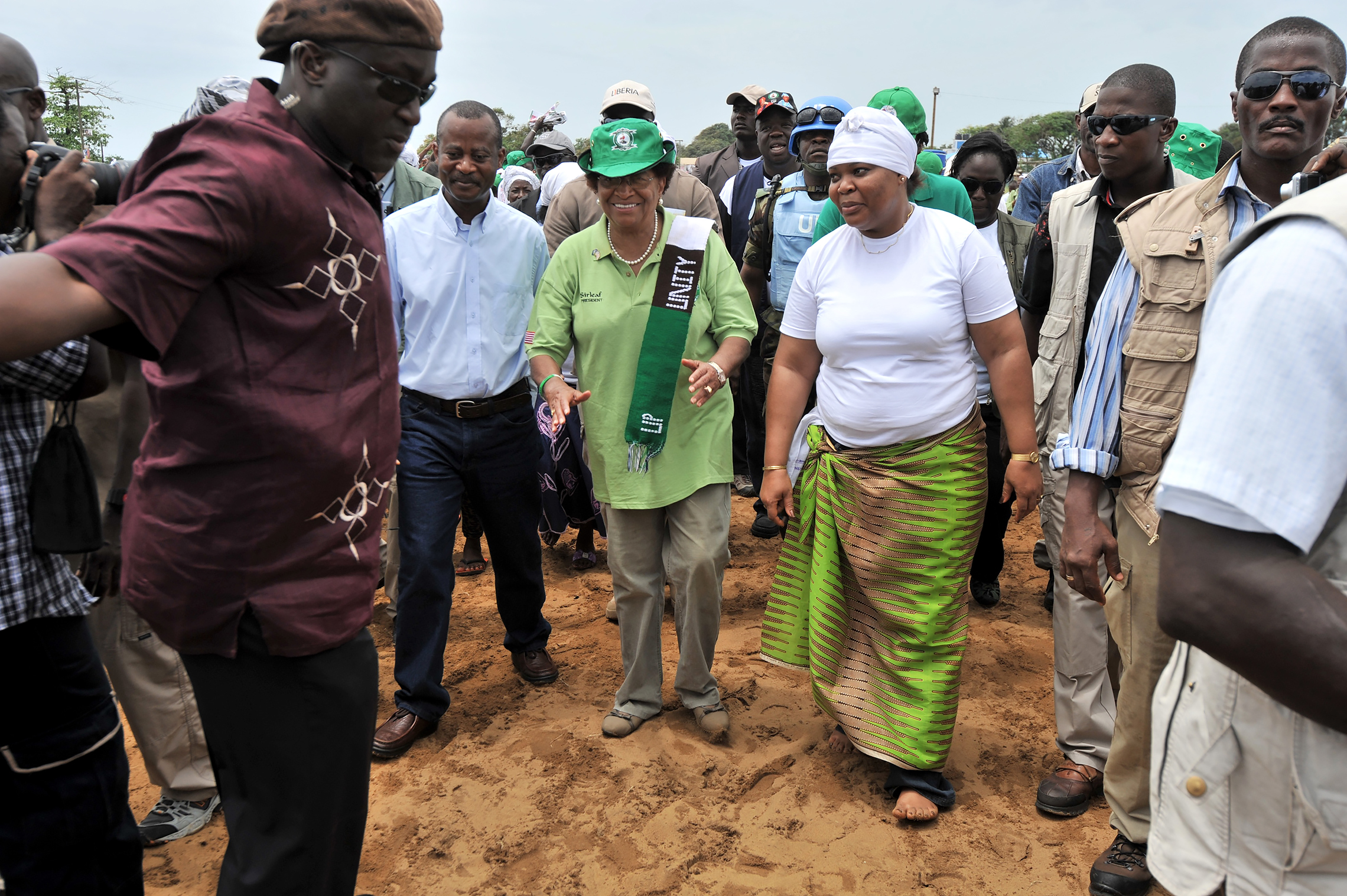
Meanwhile, President Taylor led the country into war with its neighbors and provoked his enemies to resume armed rebellion against his government. Rival armies ravaged the country, and as the warfare depleted the population of young men, the combatants armed little boys, training the child soldiers to kill without remorse. President Taylor refused to negotiate with his opponents, and it appeared that Liberia would collapse into irretrievable chaos.
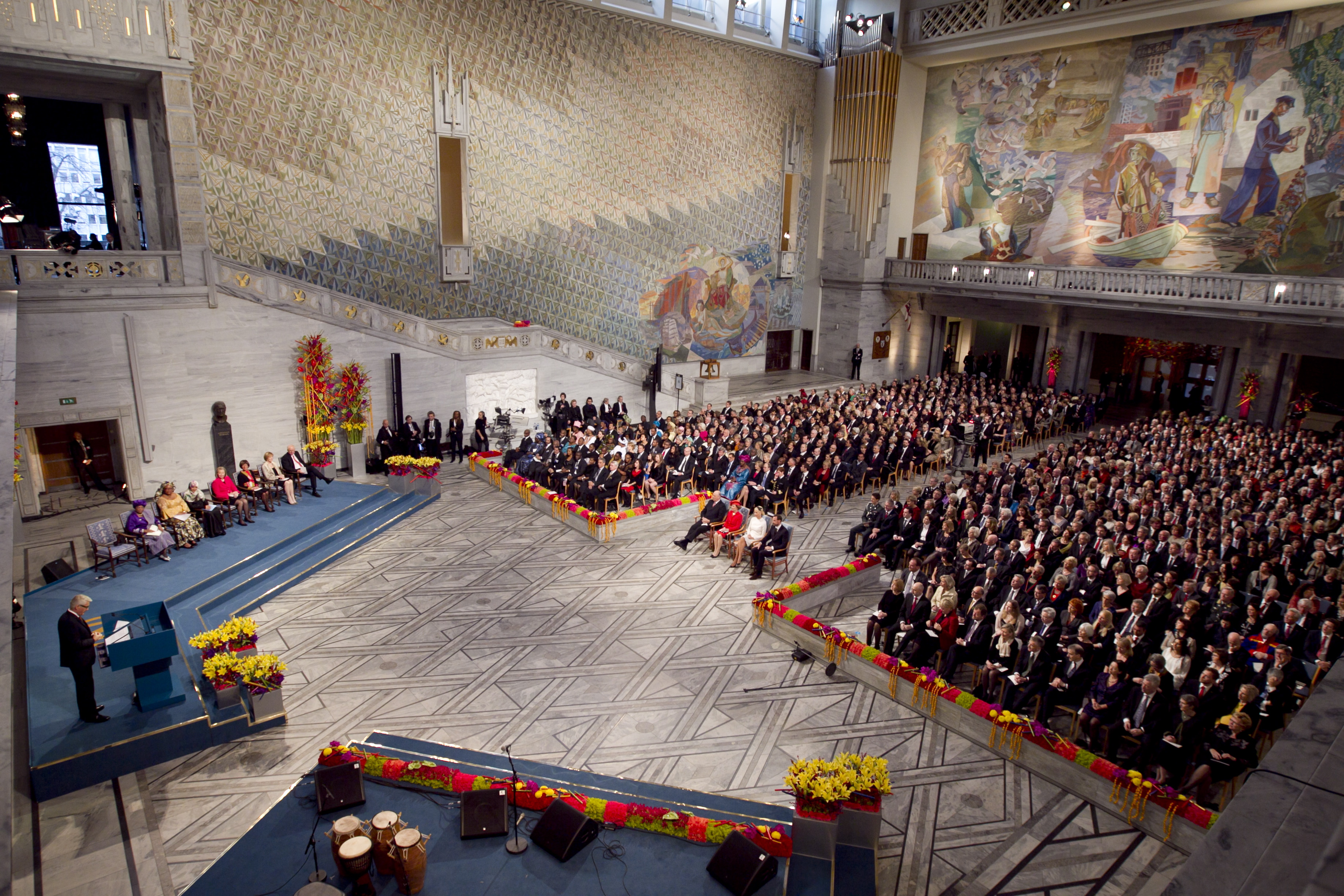
Working days as a trauma counselor and evenings as an unpaid coordinator at WIPNET, Gbowee fell asleep one night in her office and dreamed that God spoke to her, saying, “Gather the women and pray for peace!” Subsequently, she and her allies organized the Women of Liberia Mass Action for Peace. Recruiting women in markets, churches and mosques, they united Christian and Muslim women in a single movement, staging massive demonstrations and sit-ins in defiance of the orders of President Charles Taylor.
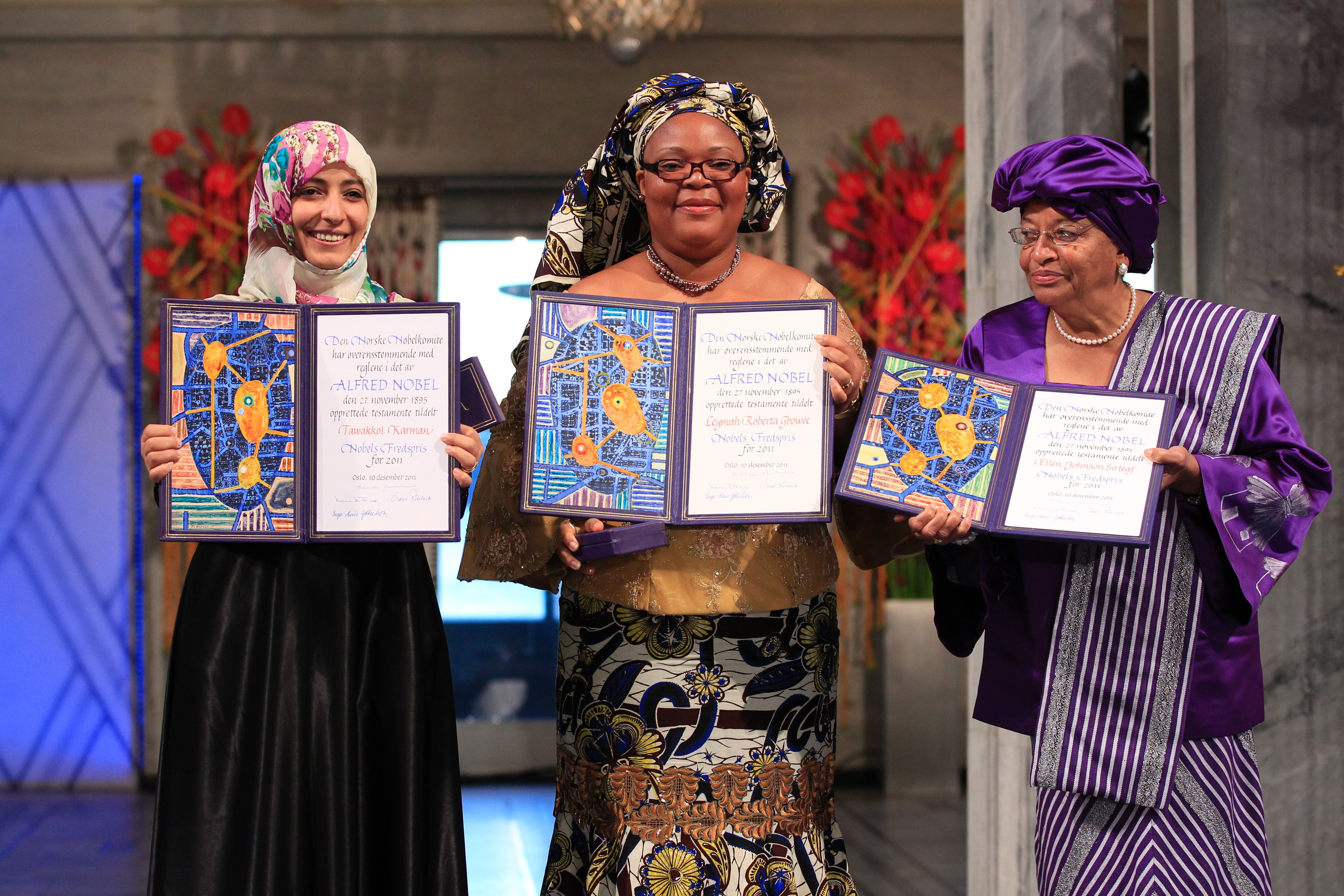
A highly-publicized “sex strike” drew international media attention to the movement, drawing comparisons to the Ancient Greek comedy Lysistrata, in which the women of Athens withhold sex from their men until they end their war with Sparta. Dressed in matching white T-shirts and white hair ties, the ”Women in White” defied the police and occupied the space along a route where President Taylor had to pass them every day. With more than 2,000 women gathered outside his office, Taylor finally granted them a hearing in 2003. As the recognized leader of the women’s movement, Gbowee was designated to make their case to President Taylor.
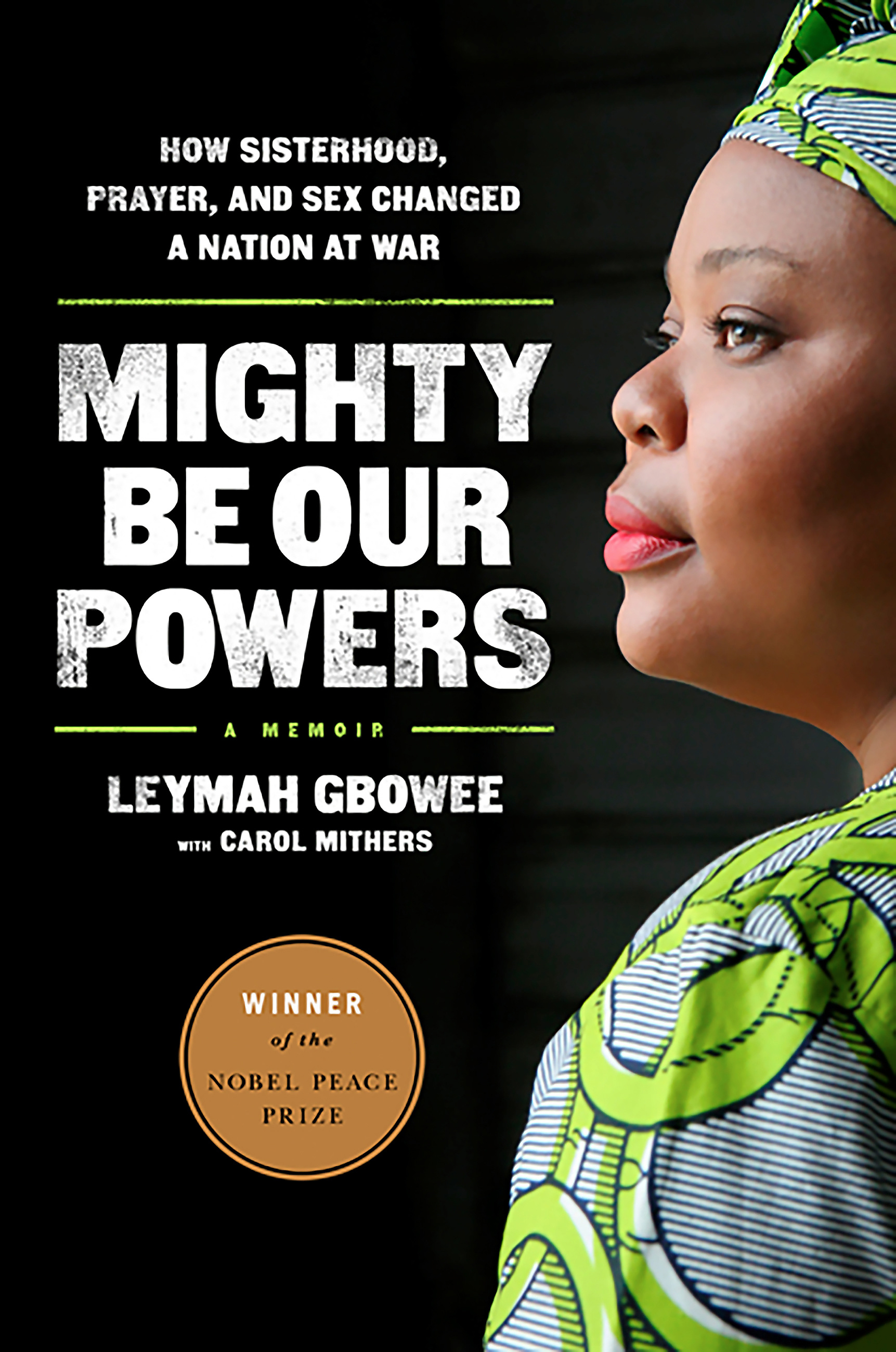
Taylor eventually agreed to attend regional peace talks — including his opposition — in Accra, Ghana. When the peace talks stalled, Gbowee led a delegation to Accra, demonstrating outside the negotiators’ hotels. Finally occupying the lobby of the hotel where the peace talks were taking place, Gbowee and her comrades barred the delegates from leaving without reaching an agreement. When the authorities tried to force the women out, Gbowee and the other mature women in the movement threatened to undress. In a traditional African context, this gesture would have been seen as an intolerable humiliation for the male delegates. The negotiators returned to the bargaining table and reached an agreement.
Fourteen years of fighting came to an end. General Taylor was forced to relinquish power, and Liberia elected Africa’s first woman president, Ellen Johnson Sirleaf. Charles Taylor was prosecuted and sentenced to virtual life imprisonment for crimes against humanity. The work of rebuilding the nation and healing the wounds of war demanded new skills from a generation of peace activists. Leaving her children in the care of her sisters, Leymah Gbowee traveled to the United States to study peacemaking and conflict resolution. At Eastern Mennonite University (EMU) in Virginia — the institution a number of her WANEP mentors had attended — she studied the concept of “restorative justice,” whereby healing occurs through the joint efforts of victims and offenders. She sought an end to the “culture of impunity” that had allowed previous African leaders to escape responsibility for the crimes they committed in office.
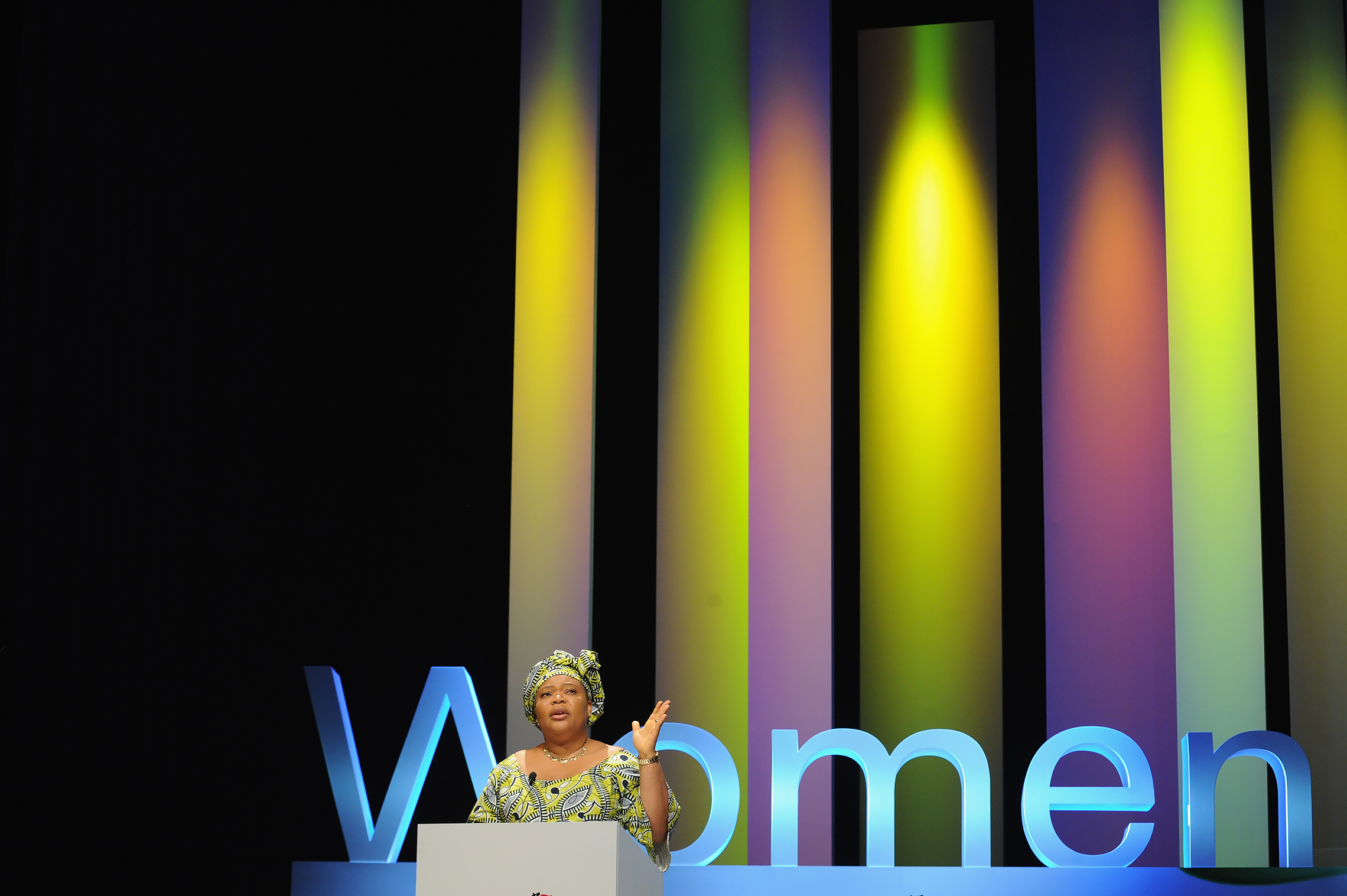
In 2006, while studying for a master’s degree at EMU, she addressed the United Nations on protecting women from gender-based violence and involving them in UN-linked peace efforts. There, she met philanthropist Abigail Disney, who set out to make a documentary film about Gbowee and her movement. This resulted in the award-winning 2008 film Pray the Devil Back to Hell, which Gbowee narrated.
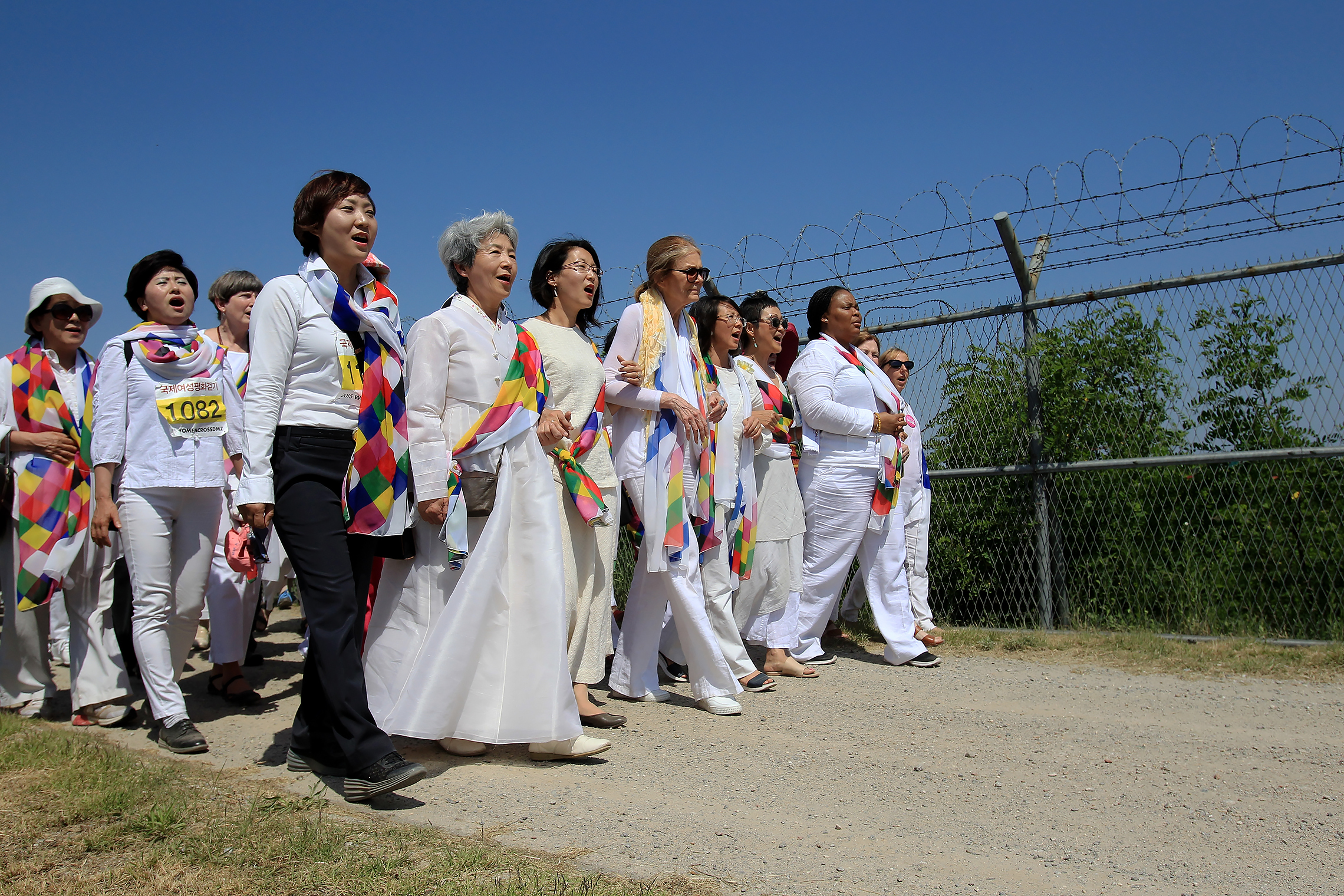
Throughout the years of war, activism, and the struggle to raise her children while traveling and studying, Gbowee had developed a severe problem with alcohol. The intervention of her family and friends — and a life-threatening stomach ulcer — persuaded her to give up alcohol for good. Her personal life remained complicated. In 2009, she gave birth to her sixth child, a daughter she named Jaydyn Thelma Abigail or “Nehcopee.” None of her relationships with men up to that point had led to marriage. But with the completion of her studies, she was reunited with her children, and her life grew more stable.
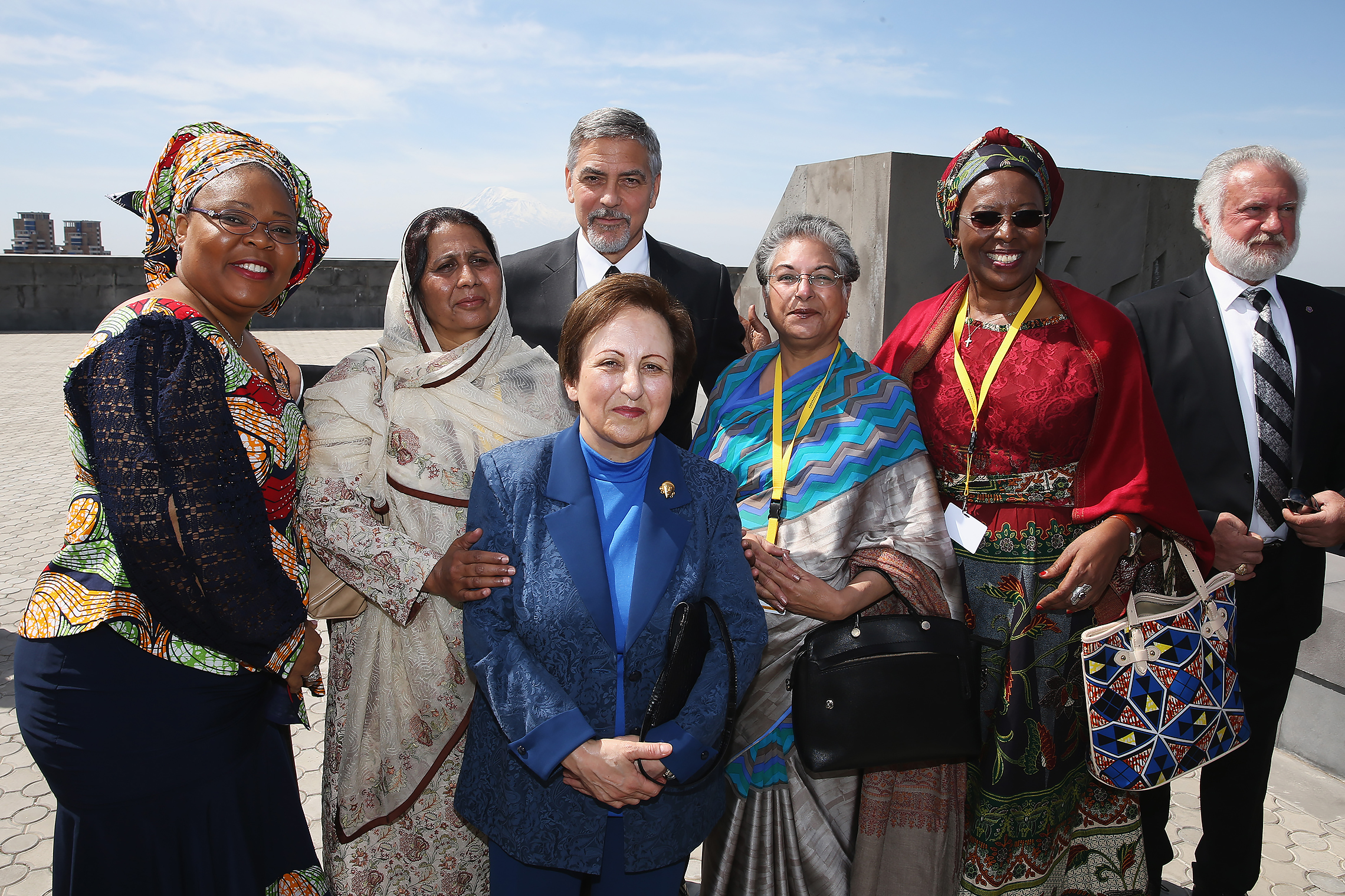
Despite her high profile as an international peace activist and advocate for women’s rights, Leymah Gbowee has made efforts to preserve her privacy; in her autobiography, for example, she used pseudonyms when discussing the men in her life. Today she is married and is happily raising a blended family of eight children. Her son Joshua has followed in her footsteps, studying at Eastern Mennonite University.
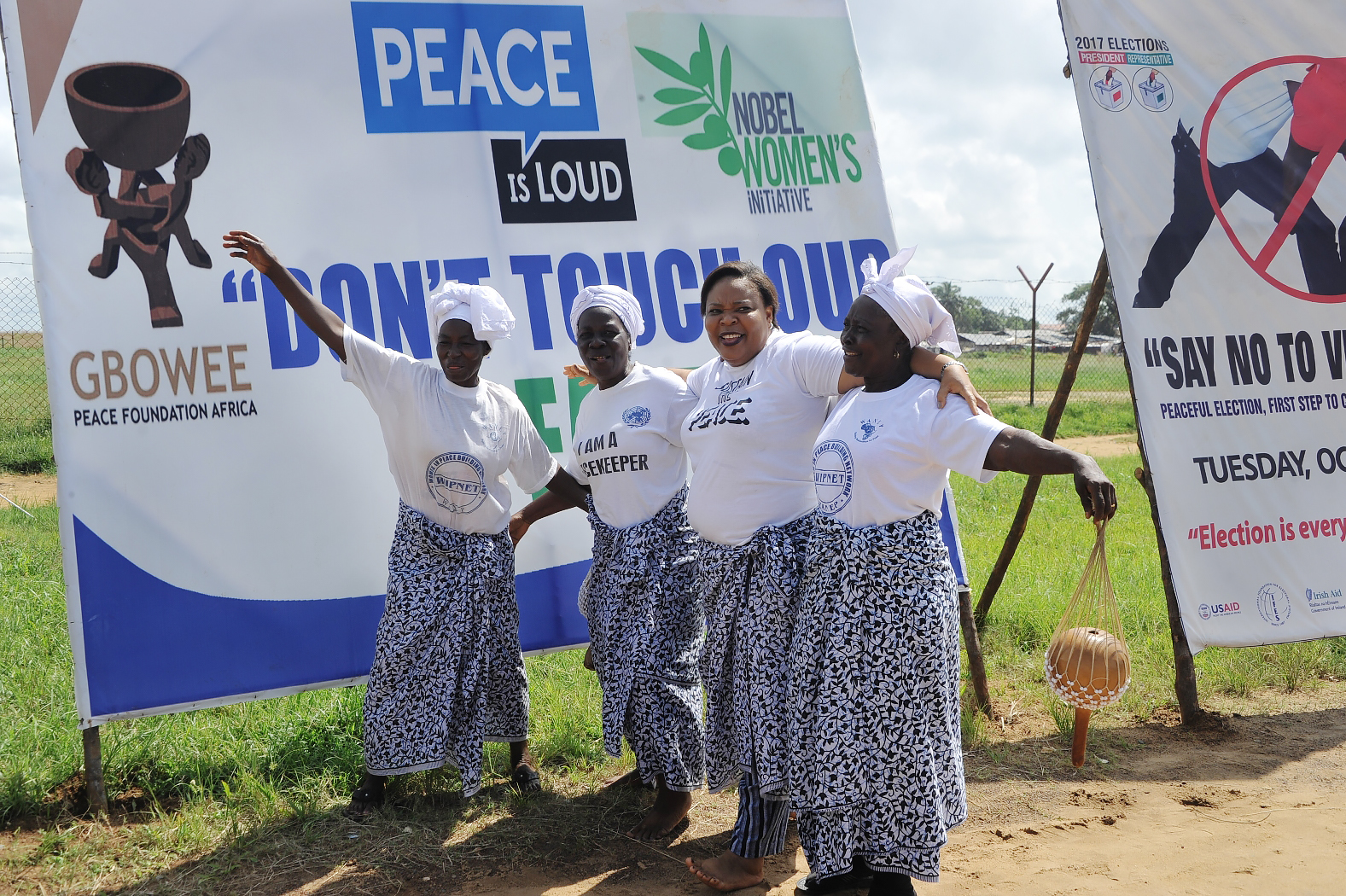
Gbowee has received numerous awards and honors for her work, including the John F. Kennedy Profiles in Courage Award. In September 2011, she published an autobiography, Mighty Be Our Powers: How Sisterhood, Prayer and Sex Changed a Nation at War. The following month, she was awarded the Nobel Prize for Peace, along with the Yemeni journalist Tawakkul Karman and Liberian President Johnson Sirleaf. Gbowee later broke with President Johnson Sirleaf in protest against the favoritism Johnson Sirleaf showed to her own family members in awarding government posts and contracts.
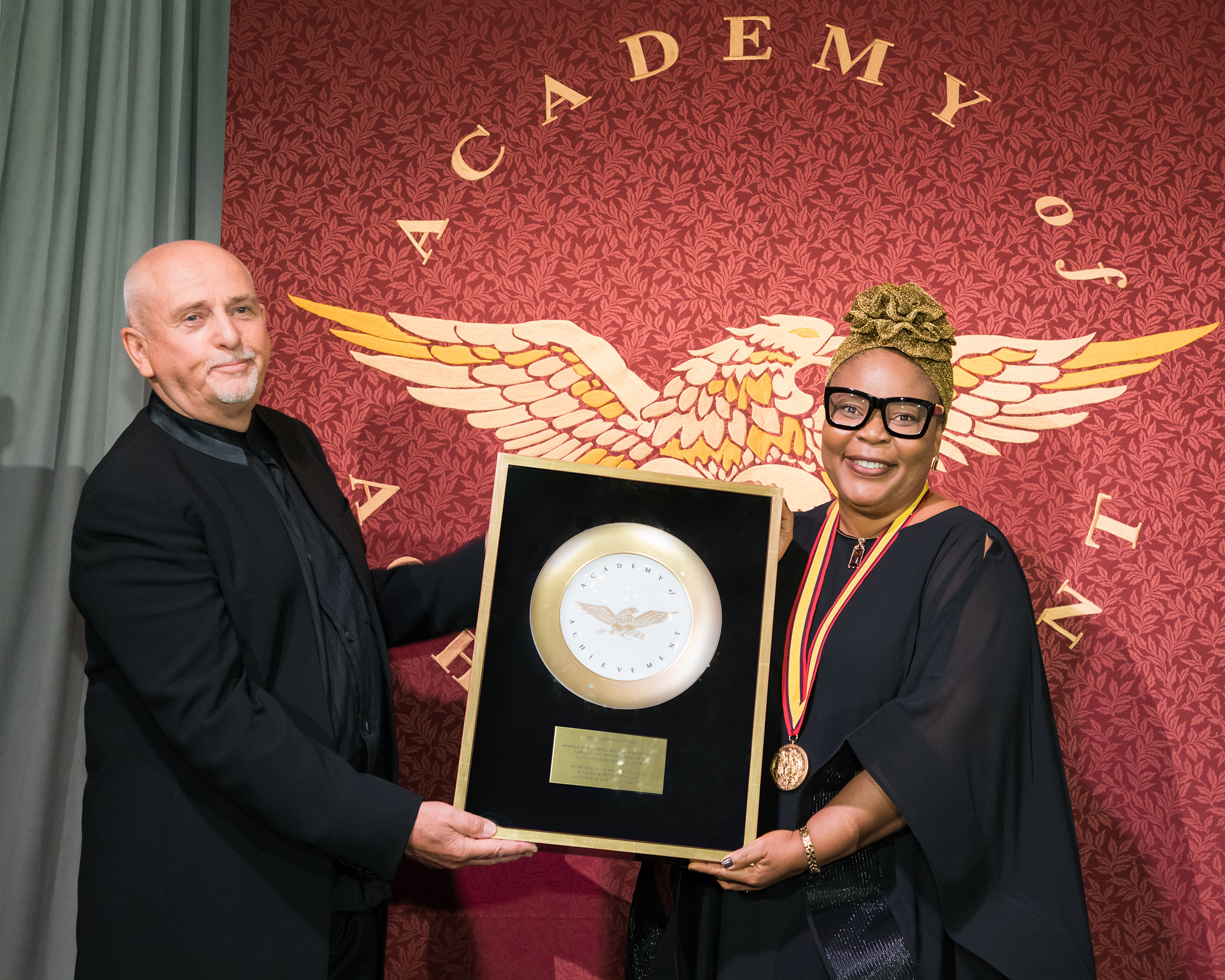
Continuing her work to empower women and educate young people, Leymah Gbowee serves as president of Gbowee Peace Foundation Africa, based in Monrovia, which provides educational and leadership opportunities to girls, women, and youth. She also served as the commissioner-designate for the Liberia Truth and Reconciliation Commission. For the 2013–2015 academic years, she was a Distinguished Fellow in Social Justice at Barnard College of Columbia University. She is also executive director of the Women, Peace and Security Program at Columbia.

At age 24, Leymah Gbowee was a single mother of four, with no job and no prospects. A refugee from the First Liberian Civil War, she returned from exile to a country devastated by years of ruthless warfare, characterized by mass rape and the brutal killing of civilians.
She took charge of her life and became a social worker, helping others to recover from the trauma of war. When her country was plunged into war for a second time, she rallied the women of Liberia to defy the warmakers and demand peace. She deployed startling, unorthodox tactics to confront the authorities, and forced her country’s dictator to negotiate with his enemies. When peace negotiations faltered, Gbowee and her “women in white” surrounded the peace conference and held the parties hostage until they agreed to make peace.
Overcoming despair, heartbreak, and daunting personal challenges, she has become an international spokeswoman and advocate for women and the victims of war and violence. She has told her story in the memoir Mighty Be Our Powers, and the documentary film Pray the Devil Back to Hell. In 2011, her achievement in bringing peace to her country — and her struggle to win equality for her country’s women — brought her the Nobel Prize for Peace.
You’ve said that your childhood was a time of relative security, but that changed when the First Liberian Civil War began in 1989. What was your life like at that time?
Leymah Gbowee: At 17, I was fresh out of high school. I had the world ahead of me. I was going to college to be a pediatrician. I was going to marry my dream boyfriend and have two children, with a white picket fence, live my dream life. My dad was working with the government, the National Security Agency. Things like that were quite good for us, so we were now a middle-class family. My mom worked at the national hospital as one of the senior dispensers in the pharmacy. And Monrovia children, I would say, at my age, we weren’t really involved in the politics of our time. We were involved in our own politics. So life was booming for us. And then, like I said, we had moved from a community where we didn’t know poverty, we didn’t know hardship. Growing up, my dad had the only television in that neighborhood. Every child came to watch television in our house. But by the time we moved outside — in the more suburban area — and we came to that community, then we realized that we were living in a bubble. Not a rich bubble, but a comfortable, closely-knitted bubble.
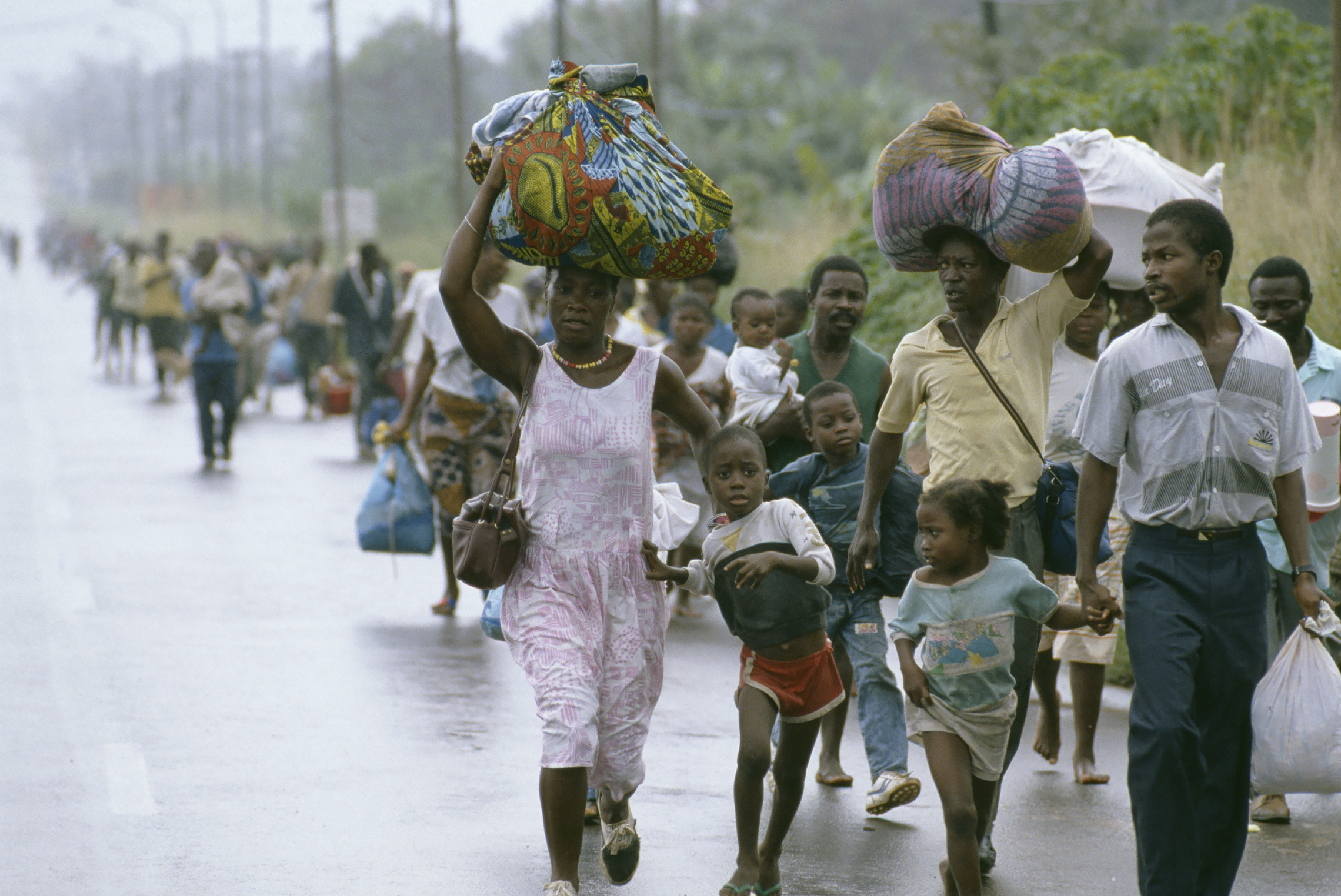
What were you doing when the war started?
Leymah Gbowee: It started two days after my high school graduation. That was when the war started at the border.
How did your life change when civil war broke out? Can you tell us about that day?
Leymah Gbowee: My mom left to go to work. My dad did not come home the night before. So I was the only one at home when the shooting erupted in that part of — where we moved at the time. I tell the story that, in one minute, I was a teenager; in the next minute, I was an adult, taking care of over 20 people who had come. They were internally displaced. I was the only child of my parents old enough, living in the house at the time. So my aunties and those around said I had to take the responsibility of taking care. So you move from that child who was pampered and dependent on everyone into deciding who sleeps where, what documents to find to keep if you had to run, making decisions about if someone died, where you all would bury them.
So one minute, we’re sitting there, and then, all of a sudden, shooting erupted. I have to collect my sister’s kids, my two younger siblings, and then I became a head of a household. And it never went back to normal until today. Because then, by the time my mother came, she was so traumatized that she couldn’t do anything. So I had to function for her. I had to think, “Let’s go this place. Let’s come this place. Let’s do this.” So people would come in, and they’d say, “We need this,” and she would say, “Talk to Leymah.” And I would be like, “I’ve been waiting for a week for you to come home and take over your life.” But eventually, I would realize that that would not be the case, even up until we went to refugee camp.
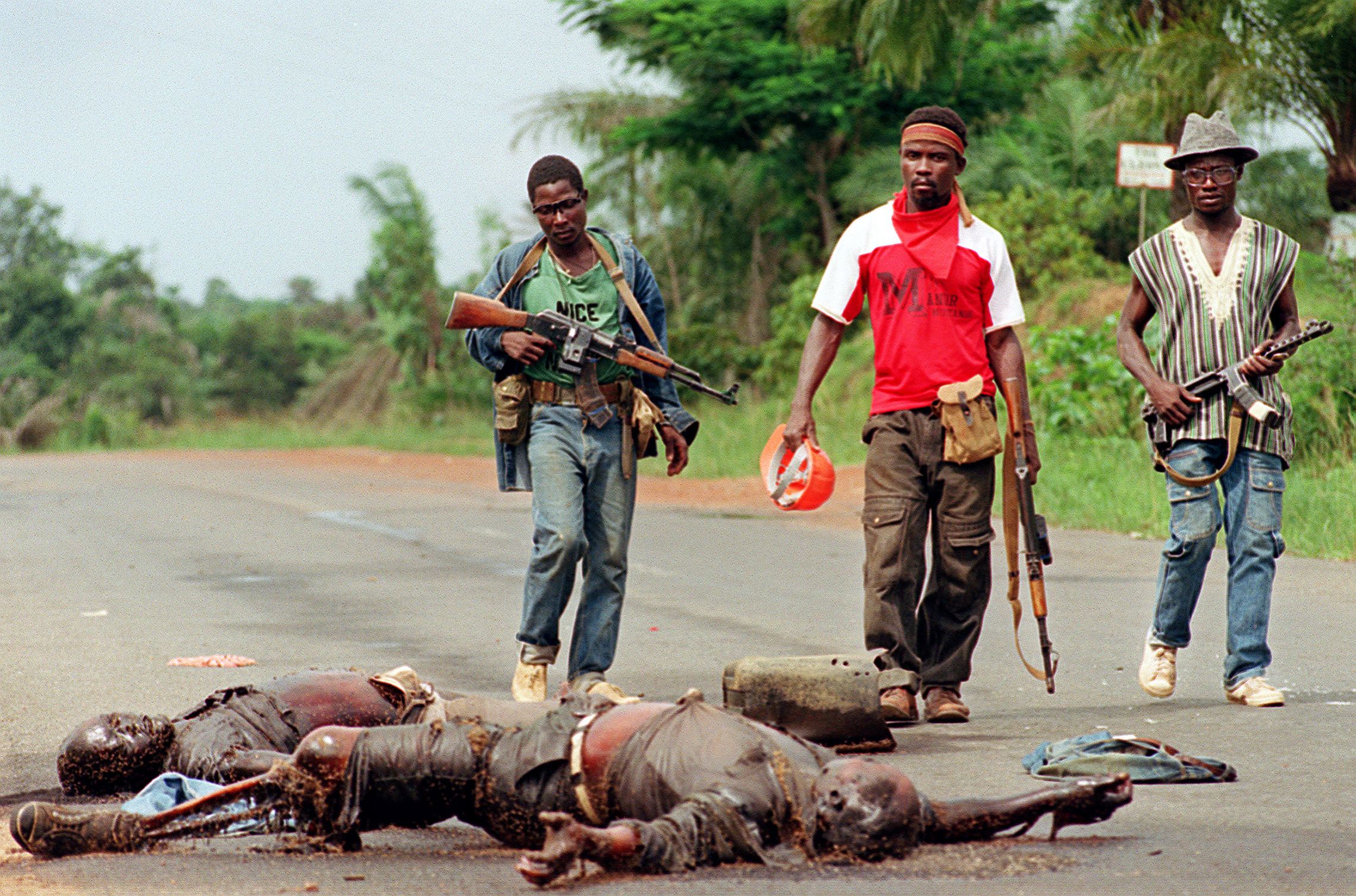
How bad did it get? Over a quarter of a million people — in a relatively small country — died in that war. What was your experience of the war?
Leymah Gbowee: Oh, my God. I never saw a dead person until I was 17. That’s how protected and sheltered we were. During that time, when we were growing up, if someone died in the next house or in your house, they would collect all of the children and put them in another house and take charcoal and put it on your forehead. The charcoal is trying to shield the eyes of the children from the spirit of the dead person. So that blackness was the black field.
The first time I saw a dead person was when we were walking in late July of 1990. This woman had been shot, apparently, but she was still clinging onto her Bible, and the dogs were eating her body. I froze. That was the first time in my entire life I had seen a dead person. It got so bad that by the time the war ended — I was in my 30s — I could eat with a dead person around me. So you move from being afraid to not being afraid — from being afraid of the shooting to moving around and trying to fend for food in the midst of the shooting. When the war started, yes, they were killing people, shooting people, but as it dragged on, the fighters and those who had the guns began to think about very creative ways of killing people. Stories I told of women who were walking, coming to a checkpoint and were pregnant, and the soldiers would put a bet on them: “She’s carrying a boy.” “No, she’s carrying a girl.” And they would open up the stomach to know the sex of the child. So these are things — it was really, really bad. And we’ve been — what? — 14, 15 years since the end of the war, but I think it’s going to take us decades to get our humanity back, to get the infrastructure developed, to get us to that place where we can look at each other again and not be suspicious that this person is a potential killer.
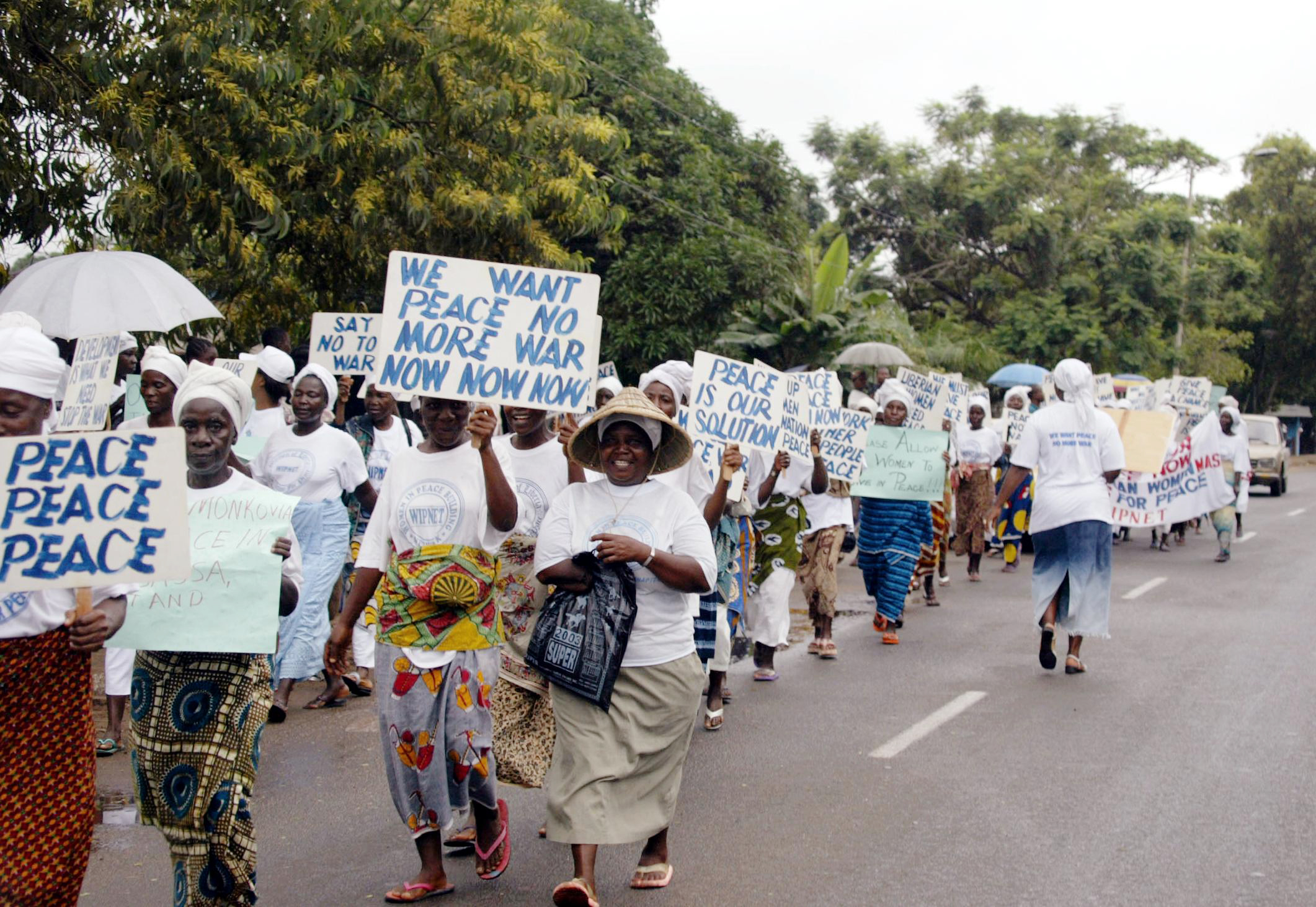
How did you shield yourself from the brutality? How do you keep functioning when they’re doing things like slitting open a pregnant woman’s stomach or shooting people at church?
Leymah Gbowee: I was very angry. I was a very, very angry young woman. I grew up in a home that, I tell people — my grandmother, she’s 111 and is still alive today — the way we woke up in the morning, my sister Josephine and I, because we were the ones who were sleeping in her bedroom — she would wake up and kneel down at the foot of her bed. Until this day, I remember her prayers. She started with “All powerful, almighty God,” and then she thanked Him for her children and her grandchildren. And she went on down that line. So we grew up with a strong sense of God, a strong sense of a prayer-answering God.
When the war started in December, we prayed — January, February, March, April, May, June, July. By July, when we have come close to a near-death experience, I didn’t want to hear the word “God” anymore. It was just that anger that was taking me. I was just very angry up until the point we left Liberia and went into exile in Ghana. So I really don’t think I shielded myself. I think just playing the role as the protector of my mother and my nephew and nieces, or the one who would wake up in the morning and would say, “Oh, you need to walk two hours from here to go and find food for us” — I was just existing, I think. So it wasn’t about trying to protect myself from anything or trying to shield myself from anything. I had a role to play, and I think my person disconnected from that girl who was out in the streets.
What was your role to play?
Leymah Gbowee: My role to play was to go pass through checkpoints. I remember, one time, they gave me a huge cache of cash to take to my grandmother because they were on the other side and there was no food. And I had to put the cash in my underwear, wear it like a sanitary pad. Because if I had gone through a checkpoint and they found that kind of money on me, I could get killed. But even walking alone as a young woman with that kind of money through a checkpoint was a risk, but it was nothing. I never thought about it. It was just that my family needed me. My mother couldn’t do it. It was my role.
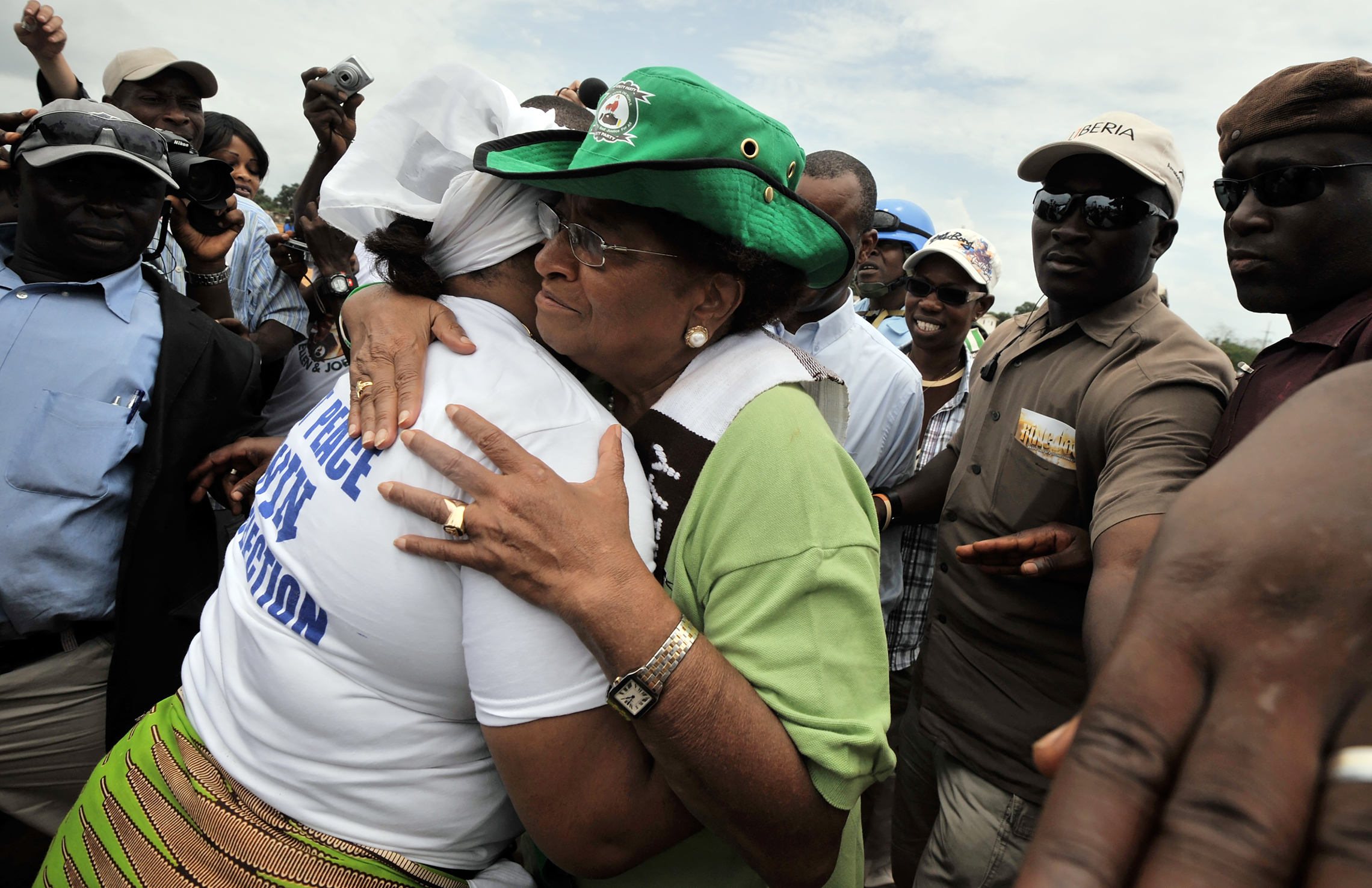
Did you make it through that checkpoint?
Leymah Gbowee: I did. I took the money. Many other days, I would cross over to different places to get food, either going to get vegetables for us to eat or going to check on these other family members. Just going to different places — I still have those images today — but I think it’s just taking myself out of it, as this girl who needs to do this for her family.
What was the closest you came to getting killed yourself?
Leymah Gbowee: I would name four incidents, apart from the moments where you have rockets and missiles flying over the building at night, which was like a common occurrence. The first one was in mid-July of 1990. We went to look for food, and we had queued, my cousin and I, to this store. We were about to enter the store. You had to have a trained eye. There was this soldier standing. There was something different about him. His uniform was brand-new, whereas all of the other soldiers around had old uniforms. So immediately, something clicked, and I kept my eyes on him. He kept shaking his head — “no, no” — like “Don’t go in there.” He kept going “no.” So as we were going closer — because the store was — people were going in to get food. As we were going closer to the doorway, he’s shaking his head “no.” And like, maybe five people from me, sporadic shooting broke out. So my cousin and I started running in the opposite direction. And we got into this house with many people. We didn’t know the people. People would just open their doors and everyone would run in. We’re all on the floor. And the shooting lasted for maybe three, four hours. But later on, we learned that everyone who had entered that store did not make it out. That was the first time.
The second time was when they had the massacre at the Lutheran Church in July. The day before the massacre, they came to the guesthouse, and they lined all of us on the wall and took several people from the line and executed them. They picked people who were known government officials. But I remember, as a 17-year-old girl, having on shorts and being very afraid that the soldiers would rape me. So I took my nephew and put him on my lap after they told us to sit down. But while they had the older people on the wall, my mother motioned to me. So I kept moving in the crowd until I finally got to her. And she whispered to me, “I have a lot of money tied around my waist. If they kill me, ask for my body.” So that was her thing. But fortunately for us, after they carried one, two, three persons, this guy who used to be married to my aunt came in, and he was an ethnic member of the soldiers. He spoke his tribe and said that his in-law and her children were there. And my mother was trying — when they said, “Show your relatives” — she was pointing to many people, and we all left together. That was the second time.
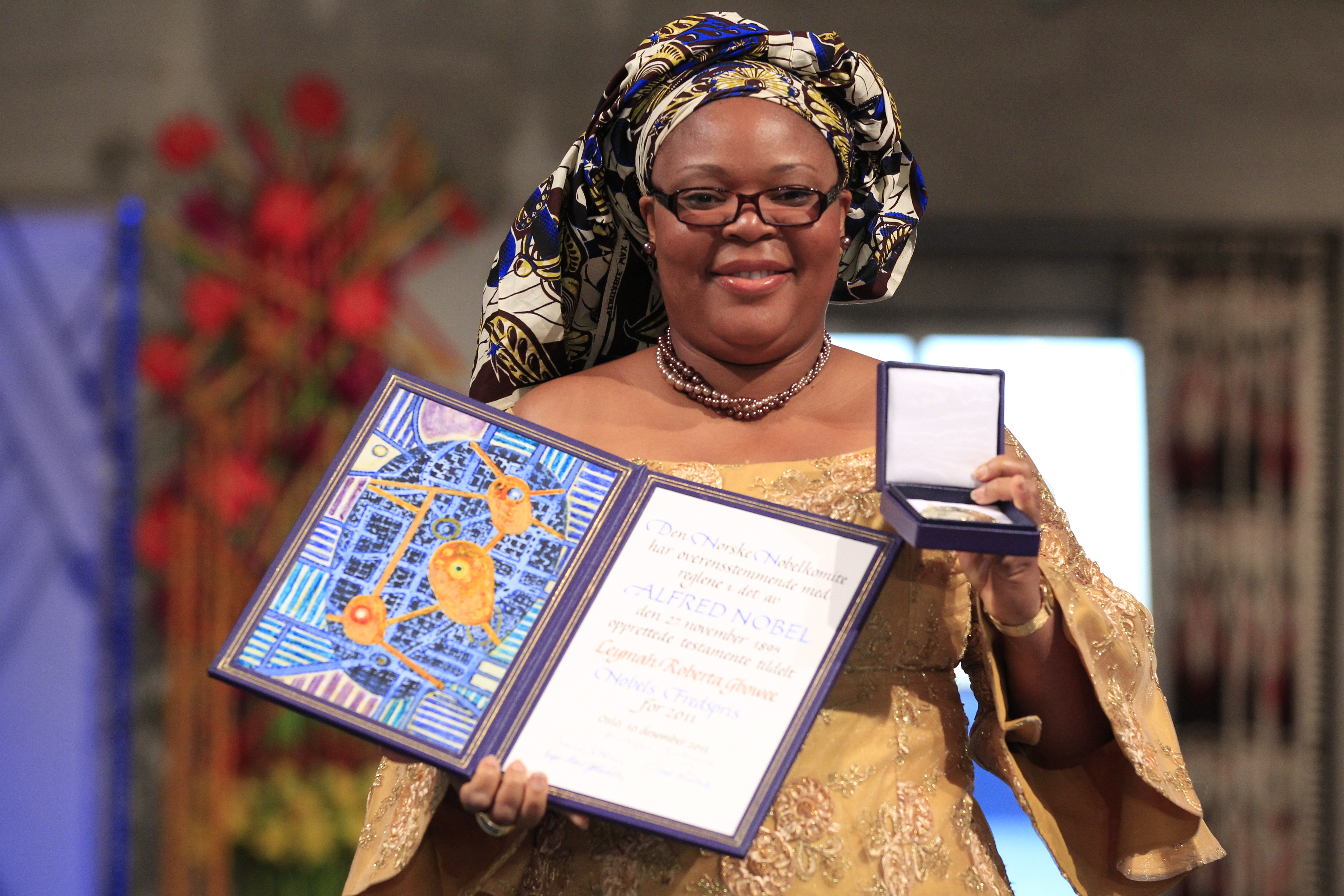
What was the key moment for you, when you realized the power of women to stop war?
Leymah Gbowee: I think the key moment for me came slowly.
We went to Parliament to protest, in the early days of our movement. And the Speaker of Parliament came. He was very angry. He wanted to know who the leader of the group was. I stood up, and I said, “I’m the leader.” And he said to me, “Why are you using those women?” I don’t know where the courage came from. I was so mad. I told him the truth, and he got so mad. But for a second, people thought we were going to fight physically because I was in his face. Unfortunately for him, he was this short, so I could talk over his head. The next day, he came to where we were sitting, where we used to protest, and he sat in his car and sent his bodyguard to say that he needed to talk to me. And the bodyguard came and said, “The Speaker wants to talk to you.” I said, “Well, tell the Speaker I’m in my office. Let him get down and walk to me.” When I saw him, it was actually — I was, yeah, trying to be brave — he opened the door, walked to me and said, “I need to talk to you.” I stood up. We walked, and he said, “This is to tell you that President Taylor will meet with you all.” That was the second thing. It was like “Wow!”
And then we get to go to meet President Taylor — 2,500 women. He had instructed his bodyguards that if we were less than 20, they shouldn’t allow us in.
Your group was very visible. You were all wearing white shirts. Where were you?
Leymah Gbowee: Half of the group was standing at the university, which is across the street from the Executive Mansion. So when we said, “So what if we’re more than 20?” the guy laughed and said, “Yeah, then come.” So I called on my cell phone and told the women to line up, and you just see this sea of white coming down. So we get in, and the security comes to me and said, “The president says you are too many. You should find ten people to come upstairs to his office to talk to him.” I said, “Show me the way to the president’s office.” He said, “What are you doing?” I said, “I’m going to tell him no.” So I walked past this guy, and I’m going in, two or three other people following me. And by the time we go up the stairs, and we’re going up together in the elevator, the guards are running after me and saying, “This is a problem! This is problematic! Why are you so troublesome? Come back, come back, come back.” I said, “No. We came to see him, and all of us will see him. So either he comes down to see us or there’s no meeting.” And then, right midway, I think he’s watching us on camera. “Circle back. He’s coming down to meet you all.” At that moment, I was like, “Okay. We got it!”
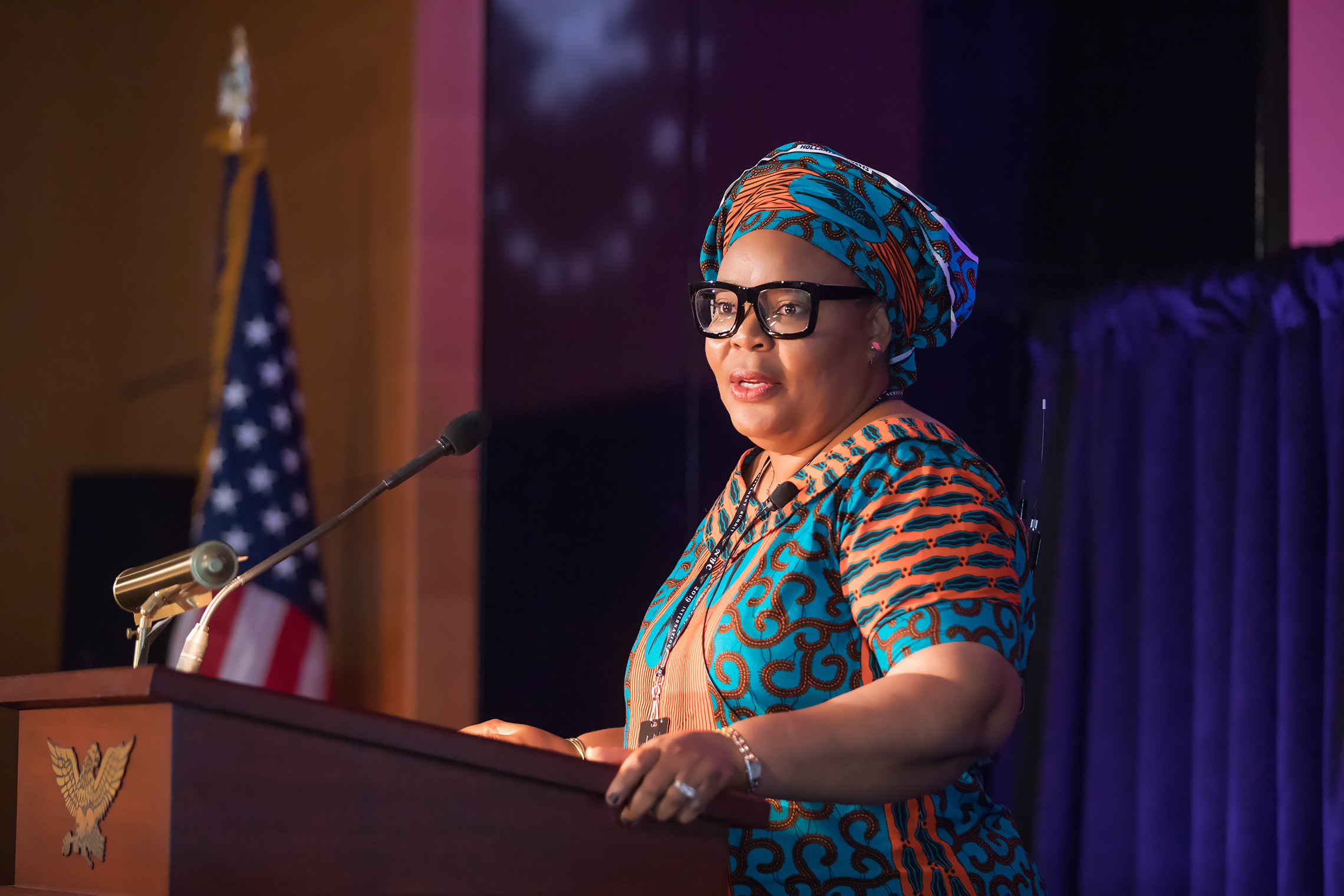
That moment when President Charles Taylor came down and talked to you and listened to you and the women in white, what was that conversation like?
Leymah Gbowee: They had given me a statement to read. And because I was already mad that he was telling us he would meet with ten people, even though he was coming down — so I was telling my mentor, Etweda Cooper, that. She goes, “This statement is too sanitized for me to read to this guy.” She was like, “Do whatever you have to do.” So he came outside, and he offered us seats — those of us who they had invited up to his platform — and we rejected his seats, so we sat on the floor because the women down were all sitting on the floor. And then they called me up, and that was when I decided, “No, it has to be about the experiences of these women.” What I was hearing every day from those women who were coming to protest was that “We’re exhausted. We’re tired of being raped. We’re tired of begging for food. We’re tired of running from our homes. We’re tired of seeing our young children being conscripted.” So I just tried to rephrase everything that those women had been saying to us. And we’re saying, “Right now, we’re not backing down until you go to the peace table and give us the peace that we need.” So there was a lot of anger. There was no fear. There was a lot of anger. There was no fear. But it was that moment that I had to speak the truth for the women. There was a lot of anger.
Where did you get that courage?
Leymah Gbowee: I think there is a moment in everyone’s life — we all have it — when you’re pushed so far back against the wall, you have two options: allow that wall to swallow you or fight back. And when you’re fighting back — even if it is a child — that is when the Liberians will say, “You don’t give a damn. You’re just fighting back!” And that is where I was because I was living the war with those women on a daily basis, whether it was the ones that had been raped repeatedly — one of the leaders of that group, who came every day from the internally displaced camp, had so much energy and was giving people so much “whoop!”
One day, she sat down with me to tell her story: that the soldiers had come to arrest someone, and she went and stood up for this person. And those soldiers decided to strip her naked in a camp of 20,000 people and ask her to walk naked in the streets of that camp and pick up paper. And as she was picking up paper, they were inserting their AK47s in her private parts. That incident happened, and afterwards, they took her — five men raped her, but she came back the next day to protest for peace. And she’s telling me this story and saying, “I will not stop until this stops.”
So every moment — I was standing either in front of a warlord or in front of Taylor’s people — it wasn’t about me. It was never, until this day — even up until now, the work that I do, it is not about me. It is about those people that I represent or those women in other parts of the world, even as we’re speaking now, who are going through similar things.

